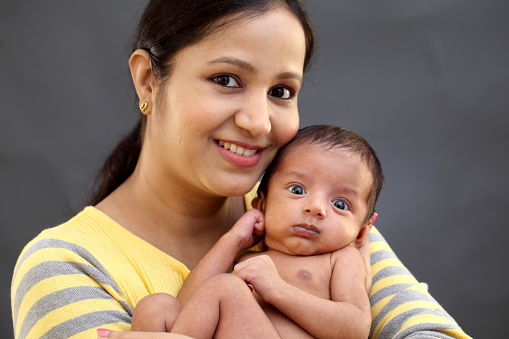


Surrogacy, a practice at the intersection of science, ethics, and human emotion, has gained immense attention in recent years. This article leaves on a journey into the scene of surrogacy in India, digging profound into its verifiable development, the different kinds it envelops, the lawful and ethical considerations surrounding it, and the intricate process that hopeful parents and surrogate mothers undergo. As the idea of surrogacy keeps on testing cultural standards and legal boundaries, understanding its intricacies and suggestions becomes essential.

Surrogacy is a method of assisted reproduction where a woman (the surrogate) carries and gives birth to a child on behalf of another person or couple (the intended parents). Surrogacy can be a complex and emotionally charged process, and the laws and regulations surrounding it vary from country to country. In India, surrogacy has been a popular option for intended parents from various parts of the world due to its relatively lower costs and established medical infrastructure. However, regulations have evolved over time.
1. Traditional Surrogacy: In this type, the surrogate’s egg is used, making her the biological mother of the child. This method is less common due to legal and emotional complexities.
2. Gestational Surrogacy: This is the more common form. The surrogate carries the child conceived using an egg and sperm from the intended parents or donors. The surrogate has no genetic relationship to the child.
3. Legal Framework: India has seen changes in its surrogacy laws over the years due to concerns related to exploitation of surrogates and the commodification of children. The Surrogacy (Regulation) Bill, 2019 was introduced to regulate surrogacy in India. Some key points from the bill include:
4. Cost and Medical Facilities: India has been known for giving moderately reasonable surrogacy administrations contrasted with a few different nations. The nation has an advanced medical infrastructure, making it an objective for clinical the travel industry, including surrogacy.
5. Ethical Concerns: Surrogacy raises different moral worries, including the expected exploitation of surrogate mothers, commodification of children, and issues connected with the mental prosperity of all gatherings included.
6. International Intended Parents: India’s popularity as an objective for worldwide planned guardians looking for surrogacy has disappeared because of the changing legal landscape and worries over deceptive practices.

Surrogacy has become a viable option for individuals and couples facing challenges in conceiving a child. India, known for its advanced medical facilities and skilled professionals, has emerged as a popular destination for surrogacy. If you’re considering embarking on this journey, here’s a comprehensive guide to the surrogacy process in India.
The journey begins with a consultation with a fertility specialist or a surrogacy agency. During this consultation, your medical history and fertility issues will be assessed. The specialist will discuss your options, provide information about the surrogacy process, and answer any questions you may have.
Once you’ve decided to proceed with surrogacy, you can choose between a gestational surrogate (where the embryo is implanted in the surrogate, who is not genetically related to the child) or a traditional surrogate (where the surrogate’s egg is fertilized with the intended father’s sperm). Surrogates are carefully screened for physical and mental health, and the compatibility of their menstrual cycle with the embryo transfer process is considered.
Legal agreements between the intended parents and the surrogate are a crucial step. These contracts outline the rights, responsibilities, and financial arrangements of all parties involved. Indian law mandates that the surrogate relinquishes any parental rights to the child. Legal experts experienced in reproductive law can guide you through this process.
The medical procedures involve several steps:
Upon successful embryo transfer, the surrogate will undergo regular medical check-ups to monitor the pregnancy’s progress. The intended parents and surrogate can mutually decide whether the surrogate will stay at a medical facility during the pregnancy or continue her regular routine while attending necessary appointments.
As the pregnancy reaches its full term, the surrogate will give birth to the child. After birth, legal processes, for example, getting a birth endorsement and guaranteeing the planned guardians are perceived as the legal guardians may be required. Indian regulation specifies that the planned guardians are the legal parents, and the substitute has no lawful case to the child.
After the child is born, the intended parents assume full responsibility for their newborn.They might decide to stay in India until all lawful methods are finished, or they can get back with their nation of origin with the child, complying to the legal requirements for international adoption or parental acknowledgment.
Overall, Surrogacy in India involves a series of well-defined steps, from initial consultation to legal formalities, medical procedures, and post-birth care. While the process offers a way to life as a parent, it’s critical to be educated, counsel specialists, and guarantee that all gatherings included are treated with respect and fairness. As surrogacy regulations and guidelines keep on developing, keeping awake to-date with the latest legal requirements is essential for a smooth and fruitful surrogacy journey in India.

Surrogacy, a reproductive arrangement in which a woman carries and gives birth to a child on behalf of another person or couple, has gained significant popularity as an assisted reproductive technology. India has emerged as a prominent destination for surrogacy due to various advantages, but it also presents certain challenges that need to be carefully addressed. Let’s delve into the advantages and challenges of surrogacy in India.
In Addition, surrogacy in India offers a few benefits, including affordability, medical expertise, and a supportive legal framework. However, it likewise presents difficulties connected with ethics, legal inconsistencies, possible shifty practices, profound intricacies, and worldwide legitimate contemplations. As the field of surrogacy keeps on developing, India and different countries really must address these difficulties through complete guidelines, ethical practices, and an emphasis on the prosperity of all gatherings included. This approach will ensure that surrogacy remains a compassionate and responsible option for those seeking to build families.

The pursuit of parenthood through surrogacy is a significant decision, one that requires thorough consideration of success rates and the quality of supportive care. As the popularity of surrogacy continues to rise, intended parents often weigh the option of pursuing surrogacy in different countries. This article examines the surrogacy success rates and the level of supportive care provided in India compared to other countries, offering insights to help intended parents make informed choices.
India has emerged as a prominent destination for international surrogacy due to its skilled medical professionals, advanced fertility clinics, and cost-effective solutions. Success rates in Indian surrogacy clinics have varied over the years, influenced by factors such as medical advancements, surrogate selection, and embryo quality. On average, the success rates for surrogacy in India have been competitive, with live birth rates ranging from 40% to 60%.
Other countries known for providing surrogacy services include the United States, Ukraine, Russia, and Thailand. The United States, in particular, boasts high success rates due to its stringent medical and legal regulations. Success rates in the U.S. often surpass 70%, owing to the emphasis on quality medical care and surrogate screening. Ukraine and Russia also offer competitive success rates, generally ranging between 50% and 60%.
While success rates are a crucial consideration, the level of supportive care provided is equally important in the surrogacy journey.
When considering surrogacy in India versus other countries, intended parents must weigh various factors:
| Aspect | India | United States | Ukraine | Greece |
|---|---|---|---|---|
| Success Rates | Moderately High | High | High | Moderate to High |
| Medical Expertise | Established clinics with expertise | Advanced medical facilities | Growing medical expertise | Well-trained medical professionals |
| Surrogate Selection | Rigorous screening process | Stringent surrogate selection | Thorough surrogate selection | Stringent surrogate criteria |
| Embryo Quality | Varies; dependent on clinic | High quality embryo options | Controlled embryo quality | High-quality embryo options |
| Healthcare Facilities | Varied; from basic to advanced | Highly advanced facilities | Developing healthcare facilities | Modern healthcare facilities |
| Supportive Care | Varied; improving over time | Comprehensive support programs | Evolving supportive services | Comprehensive emotional support |
| Counseling | Limited availability | Extensive counseling services | Emerging counseling services | Comprehensive counseling services |
| Legal Guidance | Evolving legal framework | Well-established legal structure | Supportive legal environment | Clear legal guidance |
| Emotional Support | Growing emphasis on support | Strong emotional support networks | Developing emotional support | Comprehensive emotional support |
| Intended Parent Support | Developing support systems | Extensive support for intended parents | Growing support for parents | Comprehensive support for parents |
| Holistic Approach | Advancing towards holistic care | Well-integrated holistic approach | Embracing holistic care | Comprehensive care approach |
Overall, The choice to seek after surrogacy is profoundly private, and understanding the subtleties of success rates and strong consideration in various nations is fundamental. India has turned into a practical choice for surrogacy, offering serious success rates and further developing steady consideration administrations. In any case, different nations like the US additionally give high success rates and complete help, supported by tough guidelines. By carefully evaluating these factors, intended parents can embark on a surrogacy journey that aligns with their hopes, expectations, and values.

Surrogacy has emerged as a ray of hope for individuals and couples who long for parenthood but face challenges in conceiving a child naturally. In recent years, India has garnered global attention as a hub for surrogacy, and within this landscape, Fertility Centre India stands out as a premier choice for those seeking assisted reproductive solutions. This article delves into the compelling reasons why Fertility Centre India should be your preferred destination for surrogacy.
Generally, For those considering surrogacy in India, Fertility Centre India presents a convincing decision that joins medical excellence, ethical practices, comprehensive services, and compassionate care. With a guarantee to making the dream of life as a parent a reality, the middle stands as an encouraging sign and backing for people and couples setting out on the extraordinary excursion of surrogacy.

The landscape of surrogacy in India is a dynamic interplay of medical advancements, ethical considerations, and legal regulations. While offering a promising way to life as a parent for some, it likewise brings up complex issues in regards to independence, double-dealing, and cultural standards. As India’s surrogacy process keeps on developing, it is basic to find some kind of harmony between facilitating the dreams of aspiring parents and safeguarding the rights and well-being of surrogate mothers. Progressing exchange, guideline, and moral care will be pivotal in forming the fate of surrogacy in the country.
Surrogacy is a method where a woman carries and gives birth to a child for another person or couple. In India, surrogacy involves legal agreements, medical procedures, and ethical considerations, all overseen by experienced professionals.
Indian citizens as well as foreign nationals can opt for surrogacy in India. Couples facing fertility issues, medical conditions, or those who are unable to carry a pregnancy themselves can consider surrogacy.
India has clear guidelines governing surrogacy to ensure the rights of all parties involved. Commercial surrogacy was banned in 2015, allowing only altruistic surrogacy among close relatives.
Surrogate mothers are selected based on medical and psychological evaluations. Compensation is provided for medical expenses, maternity clothing, and other related costs. This is guided by the ethical principles of fairness and care.
Intended parents are actively involved in the process, from selecting a surrogate to being part of medical decisions. Emotional support and clear communication between all parties are essential.
The surrogacy process in India generally involves legal agreements, fertility treatments, pregnancy, and birth. The timeline varies, but it usually takes around 12 to 18 months from matching with a surrogate to the birth of the child.
Read Also: